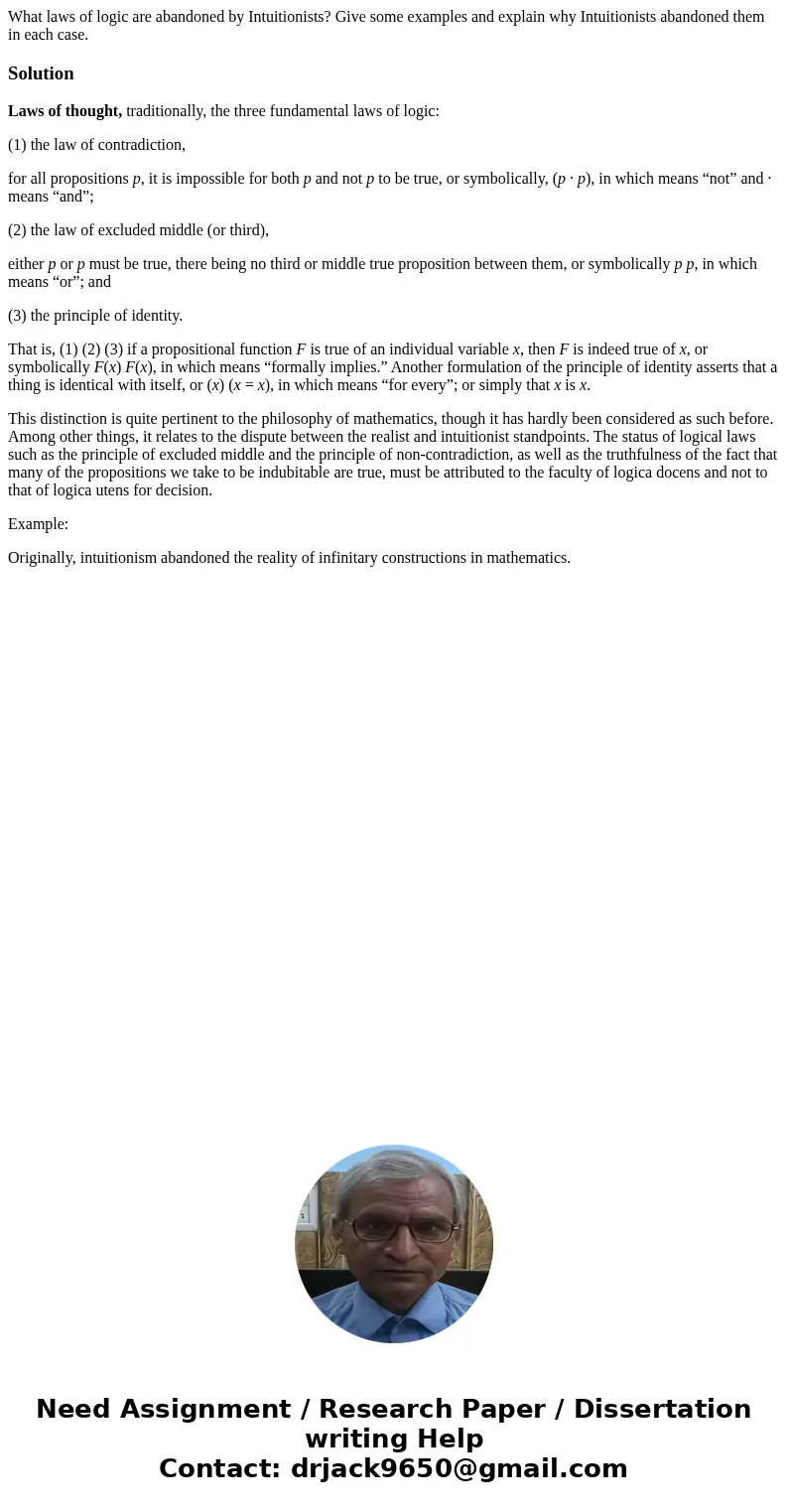What laws of logic are abandoned by Intuitionists Give some
What laws of logic are abandoned by Intuitionists? Give some examples and explain why Intuitionists abandoned them in each case.
Solution
Laws of thought, traditionally, the three fundamental laws of logic:
(1) the law of contradiction,
for all propositions p, it is impossible for both p and not p to be true, or symbolically, (p · p), in which means “not” and · means “and”;
(2) the law of excluded middle (or third),
either p or p must be true, there being no third or middle true proposition between them, or symbolically p p, in which means “or”; and
(3) the principle of identity.
That is, (1) (2) (3) if a propositional function F is true of an individual variable x, then F is indeed true of x, or symbolically F(x) F(x), in which means “formally implies.” Another formulation of the principle of identity asserts that a thing is identical with itself, or (x) (x = x), in which means “for every”; or simply that x is x.
This distinction is quite pertinent to the philosophy of mathematics, though it has hardly been considered as such before. Among other things, it relates to the dispute between the realist and intuitionist standpoints. The status of logical laws such as the principle of excluded middle and the principle of non-contradiction, as well as the truthfulness of the fact that many of the propositions we take to be indubitable are true, must be attributed to the faculty of logica docens and not to that of logica utens for decision.
Example:
Originally, intuitionism abandoned the reality of infinitary constructions in mathematics.

 Homework Sourse
Homework Sourse